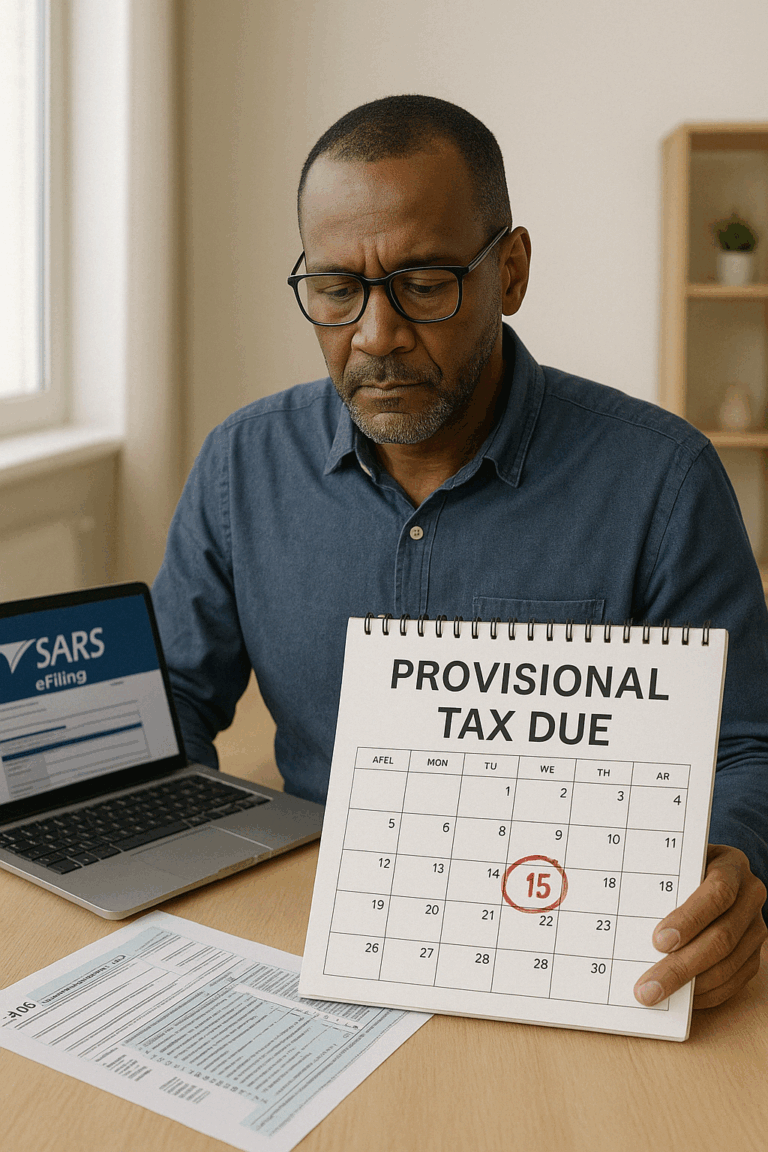How Wealth Management and Tax Planning Work Together
Wealth management and tax planning are often treated as separate services — but in reality, they are two sides of the same coin.
While effective wealth management grows your assets, without proper tax planning, a large portion of that growth can be lost to avoidable taxes.
In this guide, we’ll explore how these two disciplines intersect, why tax strategy is critical at every stage of your financial journey, and practical strategies South Africans can use to protect and grow their wealth.
What Is Wealth Management?
Wealth management is a comprehensive approach to building, preserving, and transferring assets. It typically includes:
- Investment strategy and portfolio management
- Retirement planning
- Estate and succession planning
- Risk management (insurance solutions)
- Business succession planning for entrepreneurs
Important:
Wealth management is not reserved for the ultra-rich. If you’re earning, saving for retirement, investing for your children’s education, or building a business, you’re already managing wealth — and tax efficiency should be part of your plan.

What Is Tax Planning?
Tax planning involves structuring your financial affairs to legally minimize your tax burden.
Smart tax planning is proactive, not reactive — meaning you anticipate tax consequences before making financial moves, not just scrambling at year-end.
Key aspects of tax planning include:
- Maximizing allowable deductions
- Investing through tax-efficient vehicles
- Timing income and capital gains
- Structuring income and assets through trusts or companies when appropriate
Why Wealth Management and Tax Planning Must Work Together
Think of wealth management as the engine and tax planning as the oil that keeps it running smoothly. Here’s how the two work hand-in-hand:
1. Investment Planning and Capital Gains Tax (CGT)
Selling investments at a profit triggers CGT. Without proper tax strategy, up to 18% of your gain could be lost to taxes.
✅ Example:
Jason sells shares with a R100,000 capital gain. Personally, he could owe R18,000 in CGT.
If structured through a trust or staggered sales over multiple tax years, his tax liability could be reduced significantly.
2. Retirement Planning and Section 11F Deductions
A tax-smart retirement strategy ensures:
- Contributions to retirement annuities (RAs) are deductible (up to 27.5% of taxable income).
- Withdrawals are structured to minimize lump-sum taxation at retirement.
✅ Example:
Nomsa contributes R3,000/month to her RA. Over a year, that’s R36,000 — fully deductible under Section 11F, reducing her taxable income and lowering her immediate tax bill.
3. Estate Planning and Donations Tax
Without planning, your heirs could lose 20% of your estate over R3.5 million to estate duty.
Tax-efficient estate planning includes:
- Using trusts for succession
- Making tax-free donations (up to R100,000 per year)
- Structuring life insurance correctly inside or outside the estate
✅ Example:
Thuli plans to leave R5 million to her children. By gifting R100,000 per year and using a life insurance trust, she drastically reduces future estate duty.
4. Trusts and Companies: Powerful Tools When Structured Correctly
Trusts and companies can safeguard assets — but they must be set up carefully:
- Trusts are taxed at 45% if income is retained (unless distributed).
- Companies are taxed at 27% (from 2025), but shareholders must also consider Dividends Tax.
Structured wisely, these entities can enhance both wealth preservation and tax efficiency. Done incorrectly, they can trigger unnecessary taxes.
Key Tax-Efficient Investment Vehicles for South Africans
| Investment Vehicle | Tax Advantage |
|---|---|
| Tax-Free Savings Account | No tax on interest, dividends, or capital gains |
| Retirement Annuities | Contributions deductible; growth tax-deferred |
| Endowment Policies | Taxed at 30% inside the fund (good for high earners) |
| Unit Trusts | Annual taxes on capital gains, interest, dividends |
| Trusts | Useful for estate planning and asset protection |
Top Tips for Tax-Efficient Wealth Management
✅ Start with a tax plan — before you invest, not after.
✅ Use your annual tax-free interest exemption (R23,800 if under 65).
✅ Review your investment structure regularly — tax laws change!
✅ Pay attention to asset location — offshore assets may have different tax treatments.
✅ Work with professional advisors who coordinate financial and tax strategies.
Why Work With a Team?
The best wealth outcomes happen when your financial advisor and tax professional collaborate seamlessly.
- Your financial advisor focuses on building returns and managing risk.
- Your tax specialist ensures the structure supports — not undermines — those returns through efficient tax planning.
At Sparrows Chartered Accountants, we partner with wealth managers to align your financial plan and tax strategy — ensuring that your hard-earned wealth is protected, optimized, and stays where it belongs: with you.
Final Thoughts
Wealth without tax efficiency risks slow erosion over time. Integrating wealth management and tax planning ensures that every investment, savings, and estate move you make is maximized for long-term success.
Disclaimer: This article is intended for general informational purposes only and reflects the legislation and SARS practices in effect at the time of publishing. Tax laws are subject to change, and individual circumstances vary. Always consult a registered tax practitioner or financial advisor for advice tailored to your situation.







